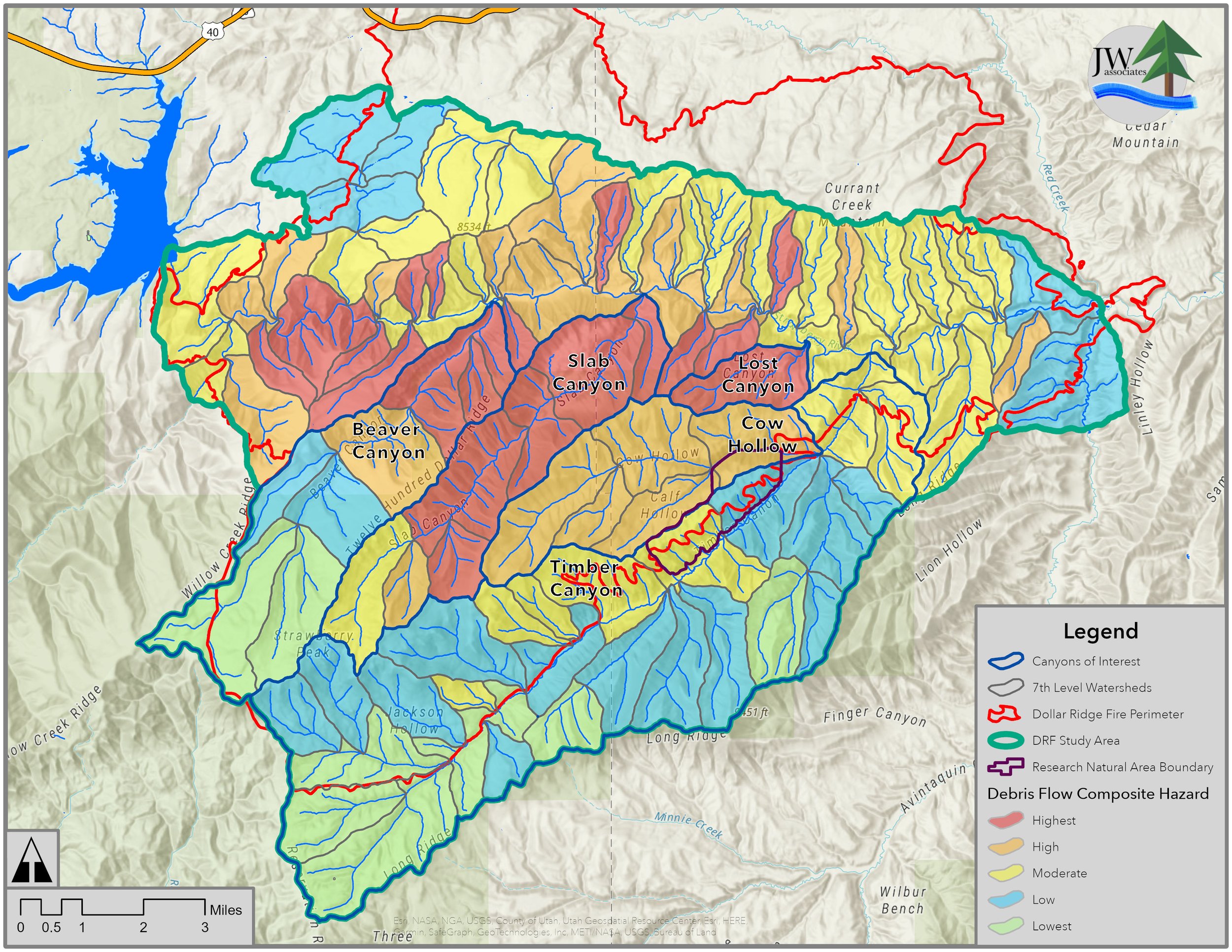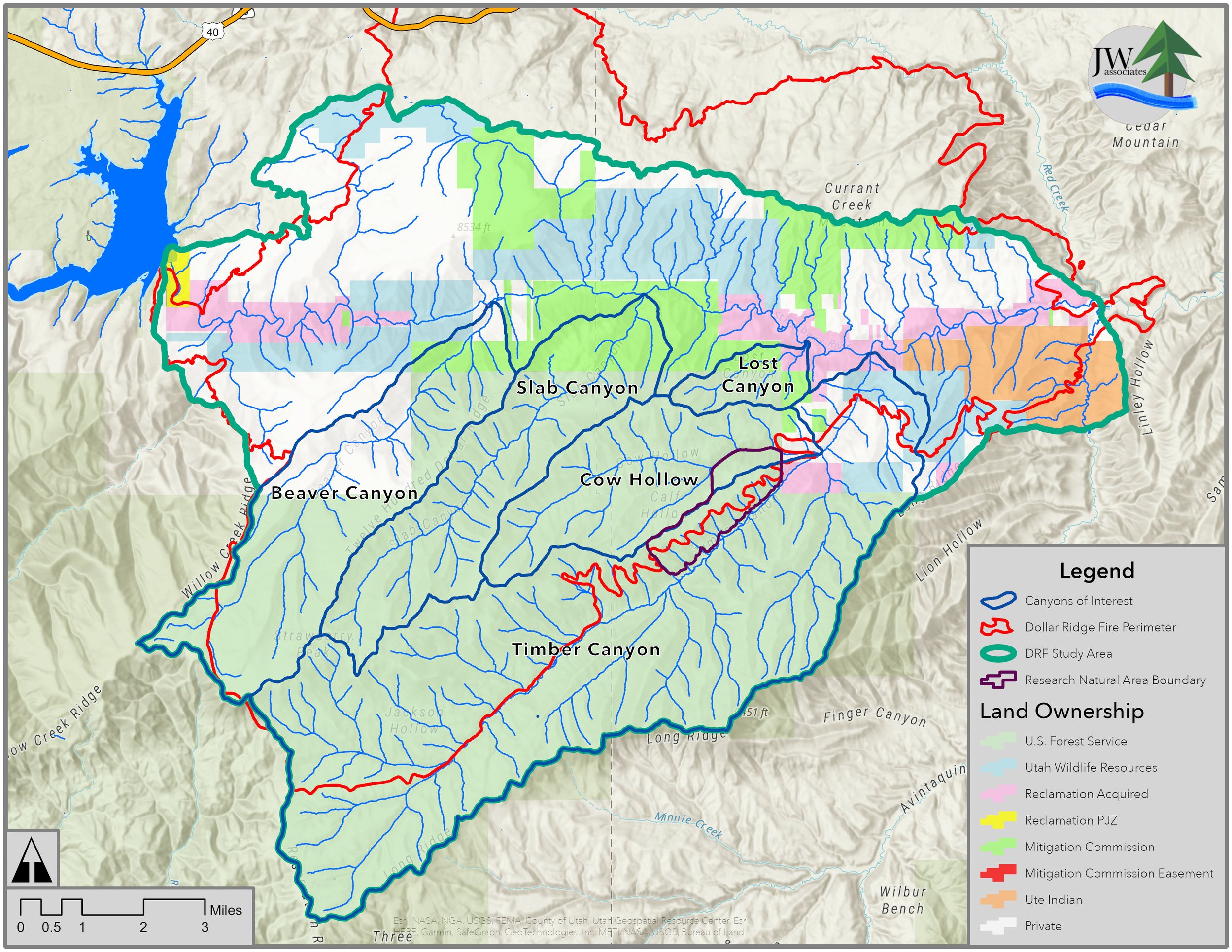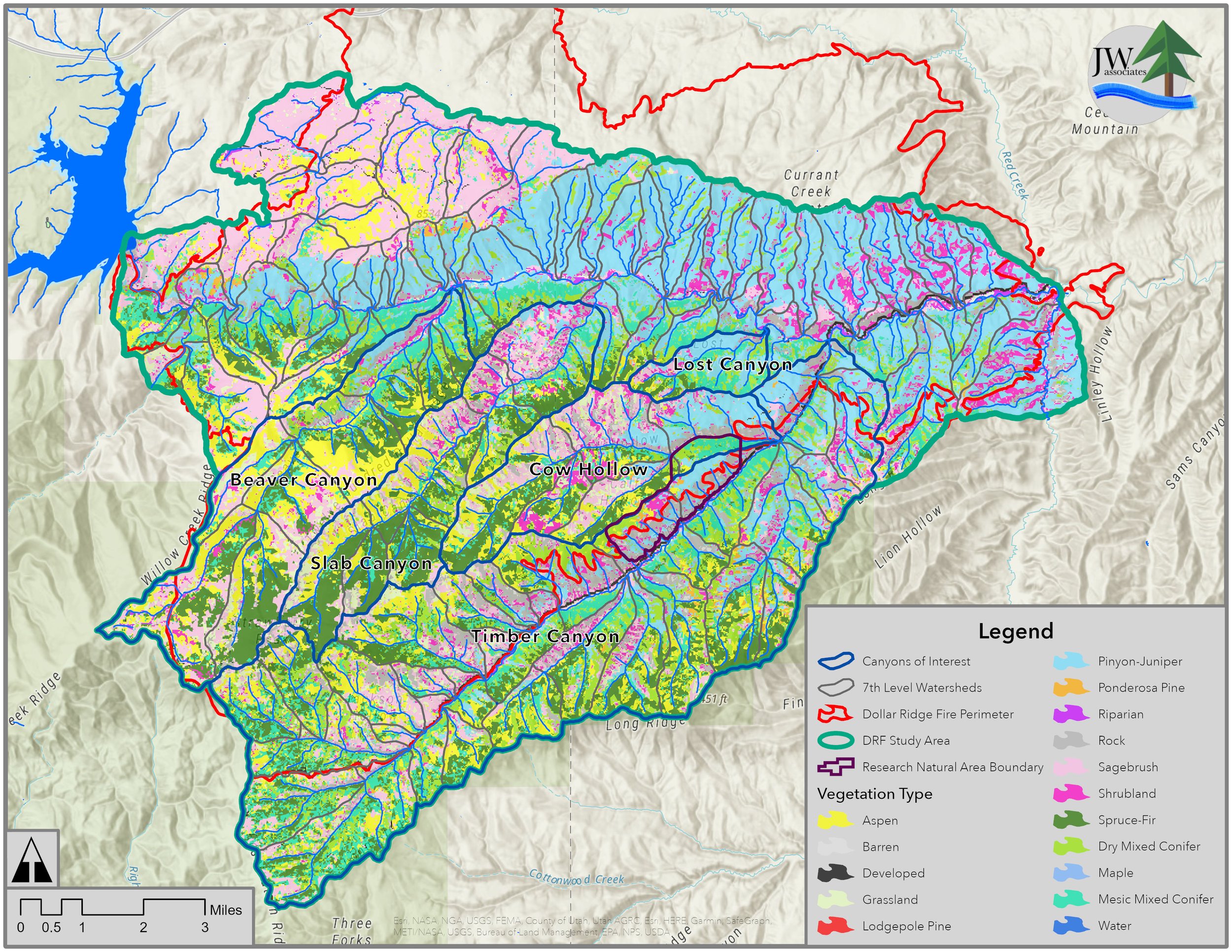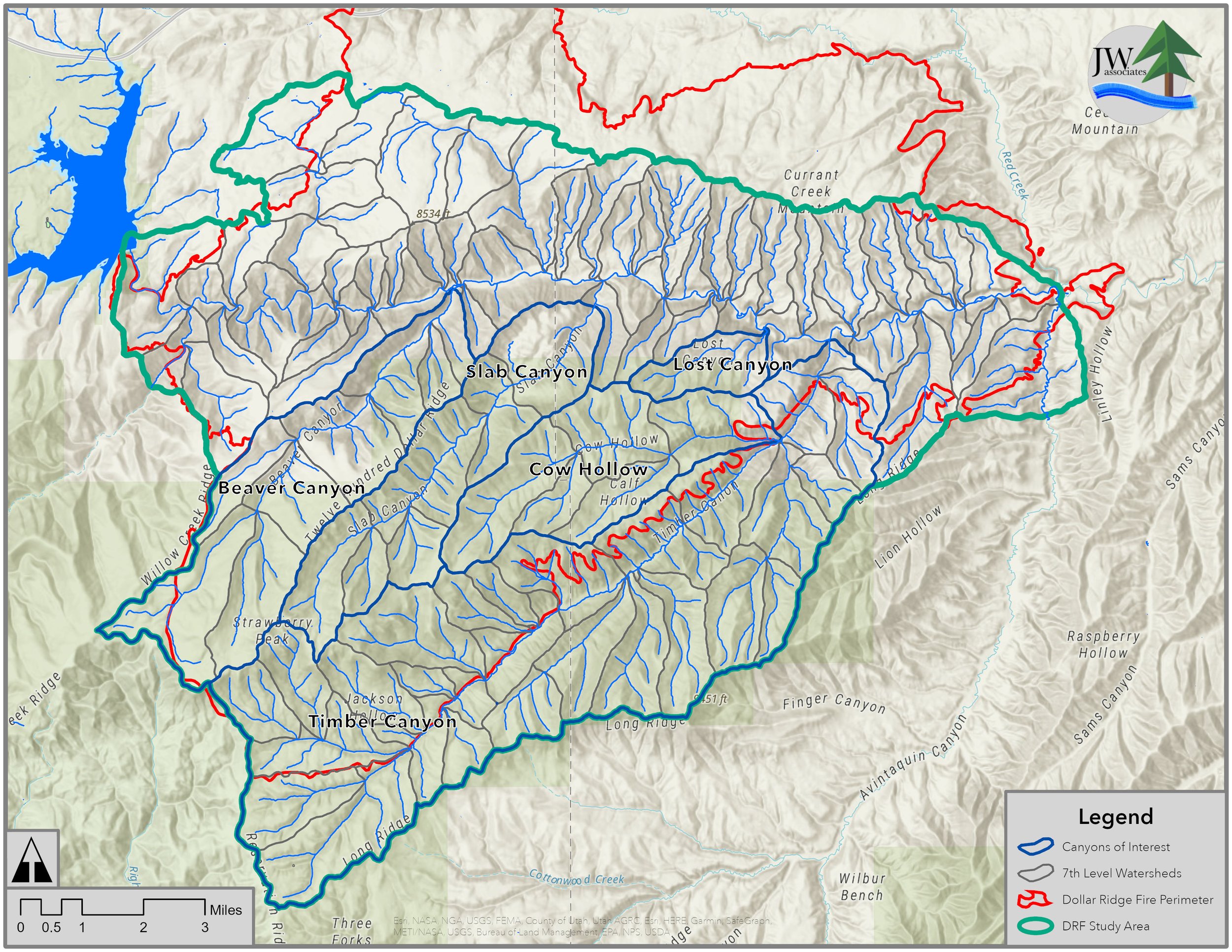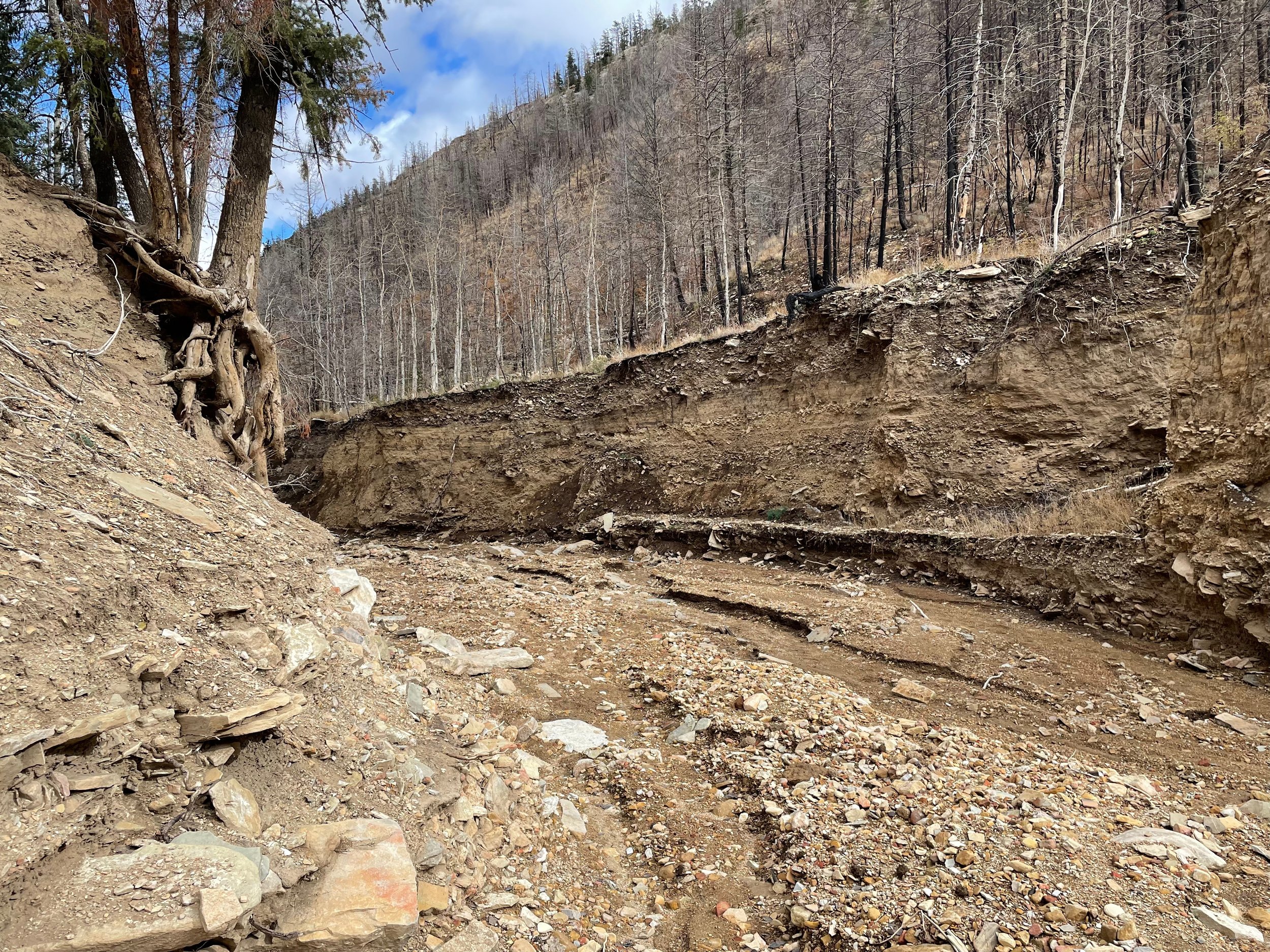
Dollar Ridge Fire Restoration Plan
Photo: Michelle Pilling, Flickr
Project Summary
Completion Date: June 2022
Partners
Co-Lead Agencies
The Utah Reclamation Mitigation & Conservation Commission
US Forest Service
Cooperating Agencies
United States Bureau of Reclamation
Utah Division of Wildlife Resources
In 2018, the Dollar Ridge Fire burned 70,000 acres in the Duschesne and Wasatch counties, Utah. As a result, the Strawberry River Watershed experienced significant post-wildfire landscape changes and hazards, including; downcuts, excessive sediment deposition, channel aggradation, massive debris flows, activated and confining alluvial fans, complete loss of soil stability in many areas, weed infestations, and loss of stream functionality and productivity as a fishery. Public access for homeowners, emergency responders and recreationalists has also been limited in the area.
JW Associates performed a watershed analysis and helped develop a restoration plan as part the Environmental Assessment for the Dollar Ridge Fire area.
Project Actions
Develop a comprehensive watershed and river restoration plan
Identification of zones of concern in burned areas
Identification of potential hazards to water supply in zones of concern
Watershed ranking based on hazard analysis
Organization and facilitation of stakeholder involvement to prioritize restoration
Develop appropriate field data to complete existing information and enable development of better-tailored restoration planning
Benefits
Protect critical water supplies and natural resources from adverse effects of post-wildfire hydrologic changes, including:
Flooding
Erosion
Debris flows
Deposition
Mitigate negative effects of wildfire through targeted projects
Project Maps
A slide show with maps of the key components of the watershed assessment portion of the plan are presented below.
